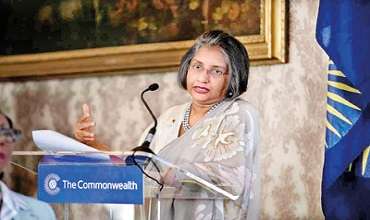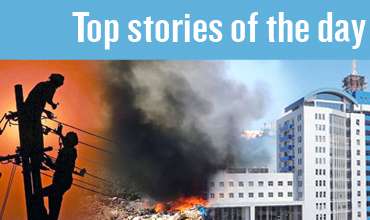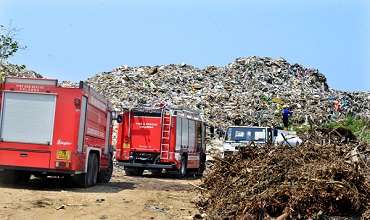Burial or Cremation: The Issues
Dignity in death is recognised as a human right world over.
However, in China, Sri Lanka, and some States in India, their respective governments have made cremation of body mandatory if the deceased is a Covid-19 patient or suspected to have novel coronavirus infection.
Although the order has been resented by Muslims, and to a lesser extent Catholics in Sri Lanka; the government has cited the highly infectious nature of novel coronavirus to dismiss the objections on account of faith.
China’s success in restricting the spread of the virus, could be cited as a large-scale field research study that confirms the validity of this mandatory order, i.e., it saves the lives of the healthy, regardless of faith! Others say that the Chinese low death rates are ‘suspicious’ as they are cremating all the evidence.
China's national health commission issued a formal order on February 2, 2020 directing the local authorities to immediately cremate bodies of Covid-19 victims; even if the family objected to it or refused to comply with the orders. Simply put, those dying of novel coronavirus infection became some kind of "state property".
The World Health Organisation (WHO) does not prohibit the burial of those dying of Covid-19; if it is under with certain strict conditions; similar to the elaborated instruction in the times of Ebola outbreak in Africa, where some had objected to burial citing the highly infectious nature of the disease.
Various burial guidelines across the world insist that the body would be handled by a trained health professional, who must be wearing full personal protective equipment (PPE). The dead body should be placed in a leak-proof plastic body bag, the exterior of which can be decontaminated with 1 per cent hypochlorite. The body bag can be wrapped with a mortuary sheet or sheet provided by the family members. Unzipping of bag for viewing face of the dead person is allowed. Nose and mouth of the body should be plugged to prevent oozing out of any body-fluid. But the body cannot be bathed, kissed or hugged.
The problem is that many are flouting the strict instructions and putting the lives of others at risk. For example, the Brihanmumbai Municipal Corporation (BMC) in India - enjoying powers under the Epidemic Act of 1897 - issued a circular, making cremation mandatory for all deaths due to Covid-19, after the family of a deceased 85-year-old surgeon of Covid-19 buried his body without following the protocol.
In Sri Lanka, there are many anecdotal stories of Muslims not registering a death, and burying secretly; in some cases, keeping a dead body in wraps for days, flouting another religious convention of immediate burial. The reaction of the Sri Lankan government seems to be that as voluntary burial conditions are being violated, it is better to err on the side of caution by making the order mandatory.
My own opinion is that the Muslims must organise themselves and convince the Sri Lankan government that all burials will be done following strict WHO guidelines; and have independent observers to ensure this.
From a Climate Change perspective, burial is far better for the Earth than cremation. It emits less greenhouse gases to the atmosphere; and the worms that a dead body nourishes provides the aeration of soil that are vital for plants to grow. But that is another story.
-
Still No Comments Posted.











Leave Comments